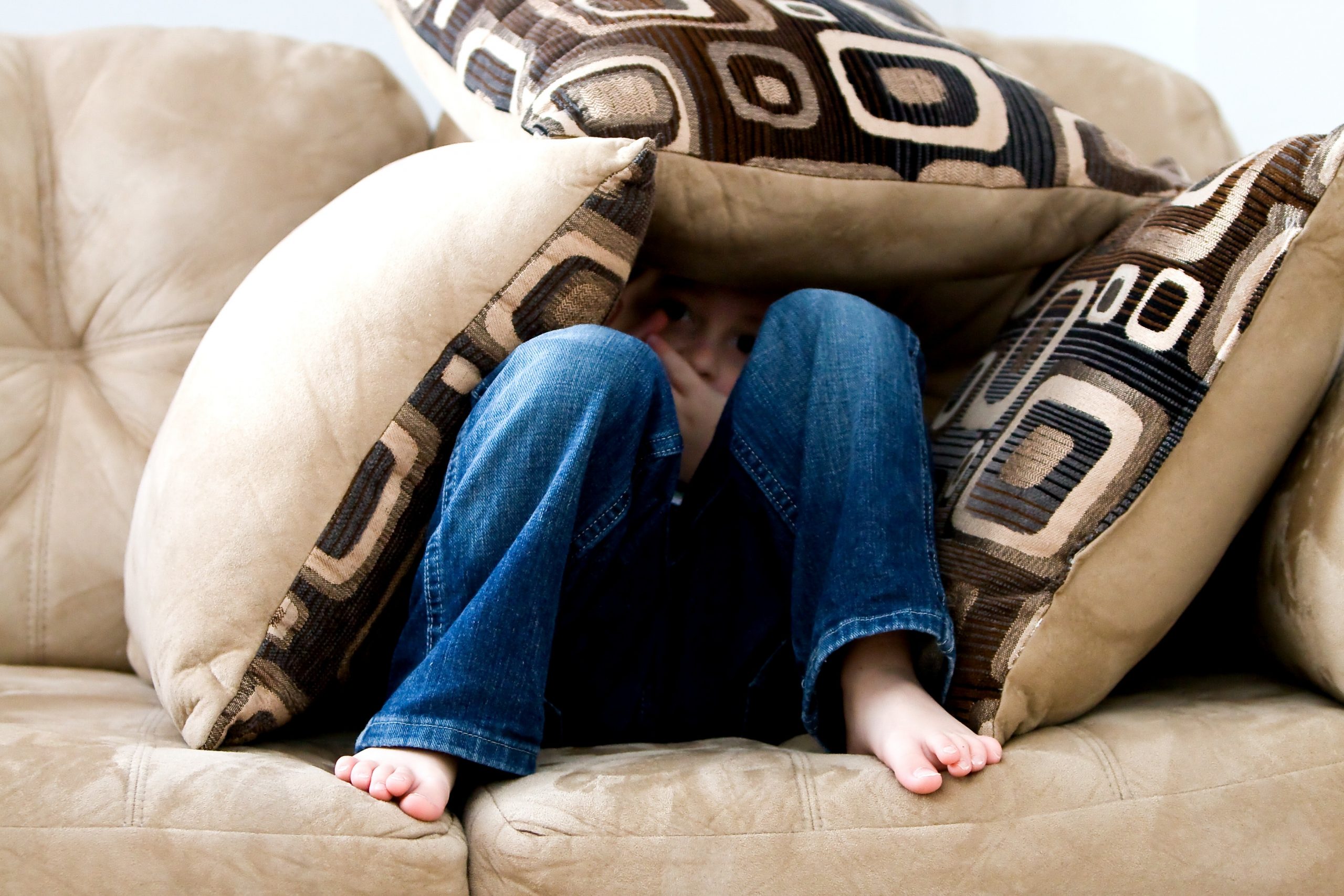Could Your Child be Highly Sensitive?

 Have you ever experienced any of the following scenarios?
Have you ever experienced any of the following scenarios?
- Your child gets anxious and resistant when it’s time to go somewhere new and insists they’d rather stay home.
- They tend to melt down fast for what seems like a minor incident and the rage comes out of nowhere.
- Your child becomes fatigued easily in large and noisy environments and shuts down when there is too much activity.
If you’ve seen your child react similarly in these types of situations, they could be highly sensitive.
What is a Highly Sensitive Child?
According to Dr. Elaine Aron in her widely acclaimed book, The Highly Sensitive Child, a highly sensitive child is one of the 15-20% of children born with a nervous system that is highly aware and quick to react to everything.
This makes them quick to notice subtle changes, prefer to reflect deeply before acting, and generally behave conscientiously. They are also easily overwhelmed by high levels of stimulation, sudden changes, and the emotional distress of others.
Some highly sensitive children can be challenging to parent as they are active, emotionally intense, demanding, and persistent while others are calm, reserved and obedient. Regardless of temperament, all highly sensitive children are sensitive to their emotional and physical environment.
What are the Characteristics of a Highly Sensitive Child?
Here are some common characteristics of a highly sensitive child:
- Get overwhelmed easily; cry often, worry about getting into trouble, and require a lot of reassurance
- Feel every emotion intensely which means they’re likely to become overexcited, as well as extra angry and scared
- Hesitant to try new thing and struggle to deal with frustration
- Sensitive and very aware of changes in their environment, have big hearts and equally big reactions
- Negotiate and push the issue when they don’t get their way
- Prone to power struggles and question authority and rules
- Frequently test to determine where boundaries lie, and protest readily when expectations seem unfair
- Carry on arguments for longer than you’d think
- Feel emotions deeply and notice when others are bothered or upset
- Pick up on changes in smells, sensations, sounds, etc.
- Ask a lot of questions
- Very sensitive to pain
Strengths and Weaknesses of Being Highly Sensitive
Rest assured that being highly sensitive is not an illness, syndrome, or disorder of any kind. Again, it is an inborn temperament or style that is found in about 20% of children and nearly all animals. It merely represents a strategy of taking everything into account before acting.
Like most other ways of perceiving and interacting with the outside world, being highly sensitive has its strengths and weaknesses. Here are some of the more common ones.
Strengths of Highly Sensitive Kids:
- Sense danger and see the consequences of an action before others do
- Are generally bright and persistent
- Tend to be very intuitive
- Extremely empathetic and in tune with others’ emotions
- Have big hearts
Weaknesses of Highly Sensitive Kids
- Can be challenging to parent as they are strong-willed and/or emotional
- Will tend to melt down quickly and become extremely angry
- Tend to engage in power struggles with parents/authority figures
- Need a lot of downtime which can differ from needs/wants of other family members
7 Strategies for Parenting Your Highly Sensitive Child
The good news is that highly sensitive children are naturally equipped with some of the greatest predictors of lifelong success. But that doesn’t mean they’re easy to parent.
Here are seven strategies for parenting your highly sensitive child.
Make boundaries firm and discipline gentle
Strong-willed children need to know what rules are non-negotiable. This minimizes power struggles and grows their confidence. They actually feel more vulnerable when boundaries aren’t clear.
Give your child a heads up
Look for every chance to give a heads up before disappointment strikes, plans change, or things get tough. This will make it much easier for them to be resilient when they feel challenged.
Establish family rules together
 Work with your child’s personality by establishing family rules together. Ask your child to talk about what rules they think are reasonable as well as how they should be reminded when mistakes are made.
Work with your child’s personality by establishing family rules together. Ask your child to talk about what rules they think are reasonable as well as how they should be reminded when mistakes are made.
Work with them instead of against them
Reframe your child’s behavior given what you now know about highly sensitive children. Avoid overscheduling, limit extracurricular activities, and provide plenty of downtime.
Provide plenty of encouragement
Praise efforts instead of results. E.g. “I like the way you got yourself ready this morning without me having to tell you.” By praising efforts, you encourage your child to persist when faced with difficulty.
Help them identify their emotions
Teach your child to identify and express their emotions in a socially acceptable way. “I feel, when you” statements are a wonderful way to help kids articulate their feelings. E.g. “I feel scared when you make me go to a friend’s party without telling me the details ahead of time.”
Teach your child to problem-solve
It’s important to teach your child how to engage in problem-solving; namely how to identify and weigh their options before making a decision. Coming up with solutions can help relieve your child’s stress and anxiety.
Sources:
- The Secret Life of a Highly Sensitive Person: And why the trait can actually be an advantage by Melody Wilding, LMSW
- 8 Discipline Strategies for Parenting a Sensitive Child by Amy Morin, LCSW
This blog post is Part One of a two-part series on Highly Sensitive Children. My next blog post will cover specific scenarios you may encounter with your highly sensitive child and how to respond most appropriately.
Begin Online Therapy for Highly Sensitive Children in Illinois and now Florida!
If your child or teen is struggling with anxiety, there is hope! Anxiety is highly treatable and online anxiety treatment at Briefly Counseling can help.
anxiety treatment at Briefly Counseling can help.
Using Solution-Focused Brief Therapy, I help kids and teens reduce their anxiety and build resilience so they can become a happier, more confident version of themselves.
And kids love being able to receive counseling from the comfort and privacy of their own home. Studies have consistently proven that online therapy delivers equal results to in-office counseling.
As an experienced and caring therapist, I love providing counseling for anxiety. To start your child’s counseling journey, call me at 224-236-2296 or email Helena@BrieflyCounseling.com to schedule a FREE 20-minute consultation.
Helena Madsen, MA, LCPC is the founder of Briefly Counseling. I specialize in providing online short-term anxiety treatment for kids and teens ages 7 – 18 as well as Christian counseling.
Whether you’re on the North Shore, in Naperville, Chicago, Champaign, Barrington, Libertyville, Glenview, or downstate Illinois, I can help.
And effective 2024, I am now licensed in Florida! For parents in Jacksonville, Pensacola, Destin, Crestview, Coral Gables, Weston, Parkland, Naples, Marco Island, and Pinecrest, I have immediate openings.
Schedule your appointment or consultation today. I look forward to working with your child to quickly and effectively help them in activating their strengths, resources, and resilience, in order to live with confidence and hope.

